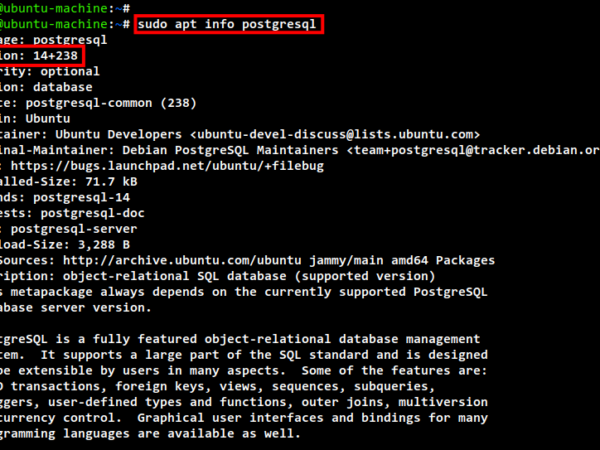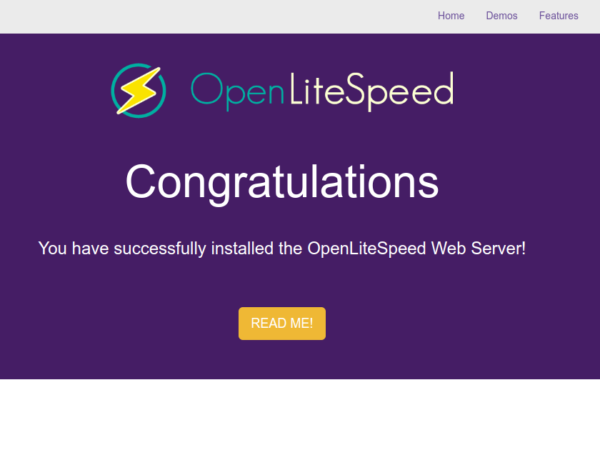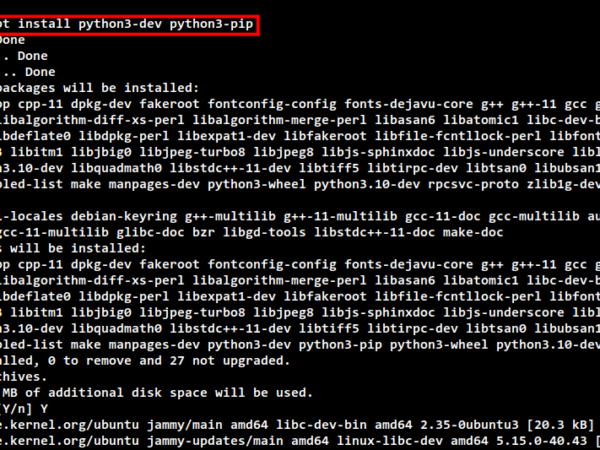In the recent article, we talked about how you can install and configure Ejabberd XMPP server. XMPP( Extensible Messaging and Presence Protocol) is a widely adopted open protocol for instant messaging. Openfire is a free to use and powerful instant messaging (IM) server that uses XMPP/Jabber protocol. This article will be focused on setting up Openfire XMPP Chat Server on Ubuntu 20.04 Linux machine
Here are some of the cool features provided by Openfire:
- LDAP integration support
- MySQL, Oracle, PostgreSQL and embedded database support for user details and massages storage.
- Support both TLS and SSL for security
- A lot of plugins to extend its functionality
- Web GUI configuration manager
- Spark IM client integration
- Clustering to avoid a single point of failure
- Integrating with other external IM servers
Below are the standard steps you’ll follow to install and configure Openfire XMPP Chat Server on Ubuntu 20.04.
Step 1: Update System
Make sure you’re working on an updated version of Ubuntu Linux.
sudo apt updateUpgrading installed packages is optional.
sudo apt upgradeIf you perform OS upgrade, a reboot is necessary:
sudo systemctl rebootStep 2: Install Openfire XMPP Server on Ubuntu 20.04
Download Openfire latest package. The version we’ll install in this article is 4.5.2.
wget https://www.igniterealtime.org/downloadServlet?filename=openfire/openfire_4.5.2_all.deb -O openfire.debOnce the Openfire debian package has been downloaded, install it with the apt command:
sudo apt install ./openfire.debAccept installation prompt by pressing the y key in your keyboard.
The following additional packages will be installed:
ca-certificates-java default-jre-headless fontconfig-config fonts-dejavu-core java-common libavahi-client3 libavahi-common-data libavahi-common3
libcups2 libfontconfig1 libjpeg-turbo8 libjpeg8 liblcms2-2 libnspr4 libnss3 libpcsclite1 libx11-6 libx11-data libxau6 libxcb1 libxdmcp6 libxext6
libxi6 libxrender1 libxtst6 openjdk-11-jre-headless x11-common
Suggested packages:
default-jre cups-common liblcms2-utils pcscd libnss-mdns fonts-dejavu-extra fonts-ipafont-gothic fonts-ipafont-mincho fonts-wqy-microhei
| fonts-wqy-zenhei fonts-indic
The following NEW packages will be installed:
ca-certificates-java default-jre-headless fontconfig-config fonts-dejavu-core java-common libavahi-client3 libavahi-common-data libavahi-common3
libcups2 libfontconfig1 libjpeg-turbo8 libjpeg8 liblcms2-2 libnspr4 libnss3 libpcsclite1 libx11-6 libx11-data libxau6 libxcb1 libxdmcp6 libxext6
libxi6 libxrender1 libxtst6 openfire openjdk-11-jre-headless x11-common
0 upgraded, 28 newly installed, 0 to remove and 0 not upgraded.
Need to get 41.3 MB/80.5 MB of archives.
After this operation, 230 MB of additional disk space will be used.
Do you want to continue? [Y/n] yStart and enable openfire service to start at system boot.
sudo systemctl enable --now openfireCheck service status if it is running.
$ systemctl status openfire
● openfire.service - LSB: Start/stop openfire jabber server
Loaded: loaded (/etc/init.d/openfire; generated)
Active: active (running) since Sat 2020-05-23 17:10:43 CEST; 2min 41s ago
Docs: man:systemd-sysv-generator(8)
Tasks: 32 (limit: 4567)
Memory: 199.9M
CGroup: /system.slice/openfire.service
└─1800 /bin/java -server -DopenfireHome=/usr/share/openfire -Dlog4j.configurationFile=/usr/share/openfire/lib/log4j2.xml -Dopenfire.lib.di>
May 23 17:10:43 ubuntu systemd[1]: Starting LSB: Start/stop openfire jabber server...
May 23 17:10:43 ubuntu openfire[1784]: best java alternative in:
May 23 17:10:43 ubuntu openfire[1784]: Starting openfire: openfire.
May 23 17:10:43 ubuntu systemd[1]: Started LSB: Start/stop openfire jabber server.Step 3: Configure Database support for Openfire XMPP Server
We’ll use MariaDB database to store message data. Install MariaDB database server with the commands below.
sudo apt update
sudo apt -y install mariadb-serverCreate database for openfire:
$ sudo mysql -u root
CREATE DATABASE openfire;
GRANT ALL PRIVILEGES ON openfire.* TO [email protected] IDENTIFIED BY '[email protected]!';
FLUSH PRIVILEGES;
QUITImport Openfire database schema:
$ mysql -u openfire -p'[email protected]!'
USE openfire;
source /usr/share/openfire/resources/database/openfire_mysql.sql;
Confirm by listing the tables in the database.
MariaDB [openfire]> SHOW tables;
----------------------
| Tables_in_openfire |
----------------------
| ofExtComponentConf |
| ofGroup |
| ofGroupProp |
| ofGroupUser |
| ofID |
| ofMucAffiliation |
| ofMucConversationLog |
| ofMucMember |
| ofMucRoom |
| ofMucRoomProp |
| ofMucService |
| ofMucServiceProp |
| ofOffline |
| ofPresence |
| ofPrivacyList |
| ofProperty |
| ofPubsubAffiliation |
| ofPubsubDefaultConf |
| ofPubsubItem |
| ofPubsubNode |
| ofPubsubNodeGroups |
| ofPubsubNodeJIDs |
| ofPubsubSubscription |
| ofRemoteServerConf |
| ofRoster |
| ofRosterGroups |
| ofSASLAuthorized |
| ofSecurityAuditLog |
| ofUser |
| ofUserFlag |
| ofUserProp |
| ofVCard |
| ofVersion |
----------------------
33 rows in set (0.001 sec)Step 4: Configure Firewall and Access Openfire UI
If you have an active firewall service, allow ports for Openfire.
for i in 9090 9091 5222 7777; do sudo ufw allow $i; doneAccess Openfire Web interface on the Server using the IP address or server hostname and port 9090. On the first prompt choose installation language:
Select your default language then click Continue. On Server setup window, set your domain and click Continue button.
For Database Settings, choose Standard Database Connection.
You can as well use Embedded Database if you don’t want to use MySQL database.
These are the a parameters I’ll use:
- Database Driver Presets:MySQL
- JDBC Driver Class: com.mysql.jdbc.Driver
- Database URL:jdbc:mysql://127.0.0.1/openfire?useUnicode=true characterEncoding=UTF-8&characterSetResults=UTF-8
- Username: openfire
- Password: [email protected]!
This is my screenshot.
Click Continue and use Default option on Profile Settings; You can later add external authentication mechanisms like LDAP
Set admin user email address and password:
Login to Openfire console in the next page.
Enjoy using Openfire.



